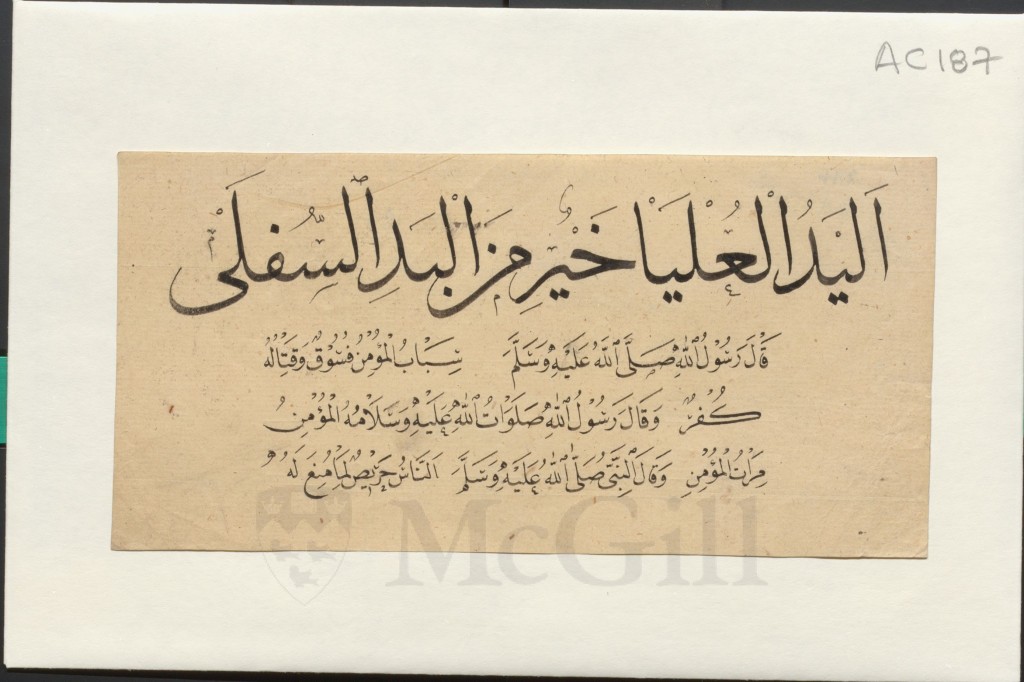The Open Access (OA) movement, which has been on-going for some time now, promotes resources that have no access limitations for anyone and encourages authors to publish in freely available resources. For the Middle East and Islamic Studies, AMIR has been collecting OA journals for the past few years.
There are a number of fantastic OA resources for the study of Islam and the Middle East, some of which are in print while others offer lectures and podcasts.
A highly valuable lecture series and pertinent one for the IIS & ISL community, in particular is the History of Philosophy (HoP) podcasts from King’s College, London. HoP covers the Classical age, Later Antiquity and the Islamic World striving to seamless illustrate the evolution of ideas in different eras, epochs and religious vantage points. The Islamic World covers the idea of falsafah (philosophy) before moving on to some of the great proponents of philosophy in the Islamic World, e.g. al-Kindī, al-Fārābī and others. Each episode lasts for about 20-30 minutes and offers a bibliography of core texts.
Another lecture based series, and still in its nascent stage is the History of Iran podcast. Founded earlier this year (2013) by Dr. Khodadad Rezakhani (UCLA, 2011), he is currently a Research Officer on Islamic Central and West Asia at the London School of Economics. This podcast “is dedicated to the history of the lands of Iran, in its broadest, pre-modern nation-state sense. It will not be straight political history and will include many episodes on aspects of social, economic, cultural, and artistic history.” To date there are four episodes though it is updated with a new episode every week.
Yale University has a number of series and lectures available for free. Included amongst these are some 20 lectures pertaining to different aspects of the Islamicate, Islam or the Middle East. Each one of these lectures is roughly 40-45 minutes and includes an assignment and often a mini-syllabus.
iTunes U offers a many freely accessible resources. One has to register with iTunes U but after that a number of valuable resources are available. A particularly delightful feature of iTunesU are the language courses, check out the Arabic one. These are great for the multi-tasker in you!
Finally, a very general resource of OA materials spanning multiple disciplines is Open Culture. There are countless resources available to the researcher from language classes to ebooks to short essays of interesting facts such as the last, known, hand-written newspaper Musalman.
Three additional resources for you to check out:
Lost Islamic History
Ottoman History podcast
The Afternoon Map
This is not meant to be an exhaustive list but rather to peek your interest in some of the freely available resources.


